Dundee’s Whitfield estate in 1980s had gala days, protests and celebrity visits.
Our Time Warp Images from the 1980s depict community life, vanishing landscapes, and memories of a Dundee plan that was undergoing improvement.
Graeme Strachan These images from the DC Thomson archives transport you back to the 1980s on Dundee’s Whitfield estate.
They document a time of transition in an area once known as Dundee’s poorest. By this decade, the population had shrunk, with unemployment skyrocketing and nearly three out of every four households earning less than £5,000 per year.
A quarter of the estate’s residences were unoccupied. Despite the hurdles, locals collaborated with Dundee District Council to enhance their neighbourhood, fostering a strong community spirit.
Our portfolio contains photographs of known individuals and vanishing landscapes. Will you recognise anyone on this journey back in time?
School meals protest
Greenfield Primary students’ mothers were outraged by the 35p to 40p increase in school meal expenses, as well as the purported reduced portion sizes.
Even the neighbourhood dogs joined the demonstration in April 1980. One dog carried a flag that read, “Give me the scraps – not the children.”
Skarne blocks
When viewed from above in July 1980, the Skarne housing development resembled a honeycomb, consisting of 130 different deck-access maisonette complexes. In the mid-1980s, a council project began to look into measures to improve the Skarnes. Many of the blocks were later demolished.
Whitfield Youth Committee
Some of the young people who were deciding on a youth committee at Whitfield Community House in June 1981. Can you identify anyone in the photo?
Multi murals
In August 1981, committee members, assistants, and children posed in front of the murals they made on the multi-story blocks at Whitfield and Quarryfield Courts. The high-rises formerly towered over the estate.
The 16-story Quarryfield and Whitfield Courts, as well as the adjacent tower complex that held Greenfield and Kellyfield Courts, have all been demolished.
Kentucky calling…
In November 1981, these Whitfield Primary School students spent much of their afternoon speaking on the phone with friends in Kentucky.
The call was a yearly occasion in which students from Cardinal Valley School in Lexington called Whitfield as part of a European initiative.
Self-defence class
A self-defence class at “A Woman’s Place” in Aberlady Crescent in February 1982. The training began after a survey found that many women in Whitfield were afraid to venture out at night for fear of being attacked.
“A Woman’s Place” offered help and activities to women in need.
Lifeboat cheque
In March 1982, Broughty Ferry lifeboat coxswain John Jack received a £12 payment from the primary seven class at Kellyfield Primary.
The money was obtained through a cake sale sponsored by student Lee Meldrum.
Street sale
A clothing stall during a Whitfield sale in July 1982.
This event was organised by “A Woman’s Place” on Aberlady Crescent.
Pedestrian tunnel
In August 1983, children stood at the end of Whitfield Drive’s pedestrian tunnel. The hand motions used were thumbs up.
However, a 1987 community study revealed that many Whitfield residents thought the tunnel was one of the most “frightening” sites in town. Due to antisocial conduct, the passage was later bricked up.
Street party
In August 1984, children enjoyed a day out in the sunlight during a street party on Ormiston Crescent, which has since become an annual event.
The party featured food, party hats, games, and competitions.
Baby Jane
Residents dressed in fancy dress for the Whitfield Gala in August 1984, with one woman being pushed in a pram.
The handwritten placard on the front identified her as “Rod Stewart’s Baby Jane”.
Sponsored walk
Members of Whitfield Parish Church, along with Rev David Donaldson, Rev Hector McMillan, and Deaconess Fay Lamont, prepare for a sponsored walk across the Tay Road Bridge to collect funds for the church in May 1985.
Fay was spotted patting a dog that eventually joined them.
Whitfield Church
Smiling smiles at Whitfield Parish Church, August 1986.
Children were attending evening programs at the Holiday Mission.
Fancy dress disco
A fancy dress disco took place at the Whitfield Activity Complex in July 1987.
Costumes included angels, chefs, clowns and a karate kid.
Roller skating
Neil Gunn, a community education specialist, helped young children roller skate at Whitfield Activity Complex in 1987.
Over the years, the venue has hosted a variety of events, including fitness courses, line dance, circus skill seminars and Spanish tuition.
Carberry Crescent
Residents gathered outside the Carberry Crescent Community Club in 1987.
It debuted in May 1984 as part of a strategy to upgrade the Whitfield project.
Haddington Crescent
The houses on Haddington Crescent were demolished in 1987. It was the least popular part of the Skarne.
The demolition work was part of a multimillion-pound rehabilitation project.
St Matthew’s Primary
In May 1988, a “litter-hungry Dusty Bin” and a “litter-eating robot named Rettil” were common sights on the playground at St Matthew’s Primary.
They reminded students about the necessity of keeping the school clean. Dusty Bin was a P1 project. The robot was built by the older pupils.
Joanna Lumley
Joanna Lumley, a popular actress, taped a BBC documentary in 1989. It’s My City studied Dundee’s redevelopment.
She was very interested in the work going on in Whitfield and condemned the “ghastly” and “dehumanising” Skarne blocks that were due to be demolished.
Fun in the sun
The Hutcheson, Skelly, Stewart, and Burgess families of Girvan Gardens in Whitfield took advantage of the sunny weather in July 1989.
They drank up the sun on the grassy space outside their houses.
Rugby practice
Colin Robertson, the Scottish Rugby Union’s Youth Development Officer, was teaching rugby to kids at Whitfield Primary School in September 1989.
Can you see anyone who took part?
A royal welcome
In October 1989, the future king paid a visit to the Skarne blocks in Whitfield.
Around 60 locals formed an enthusiastic welcome committee in Ormiston Crescent before Charles stopped to speak with the audience.
Chatting to residents
Charles demonstrated a genuine interest in the condition of the locals and the efforts being made to rehabilitate the concrete jungle.
He said he was thrilled by the housing developments, particularly the role Whitfield people took in bringing them about.
His passion in Whitfield remained strong, and he returned in 1995. This is the final image from our Whitfield 1980s gallery.
Read more on Straightwinfortoday.com



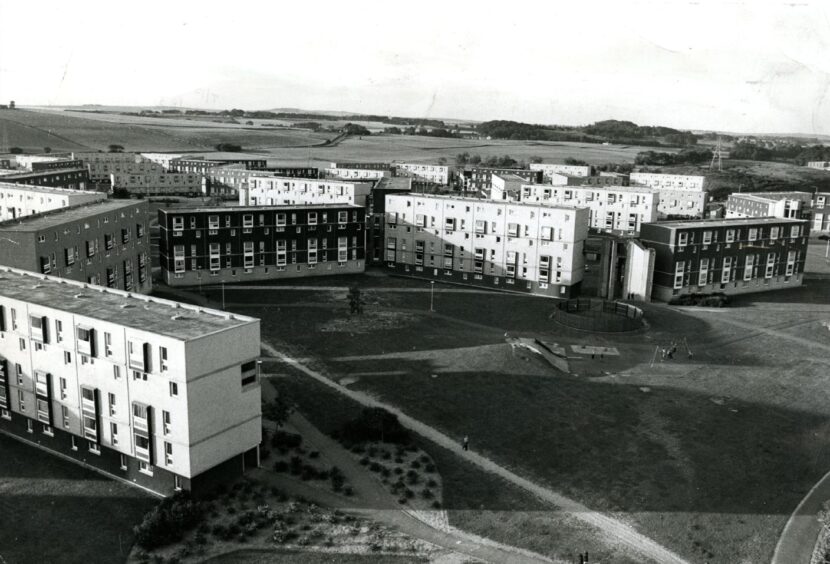
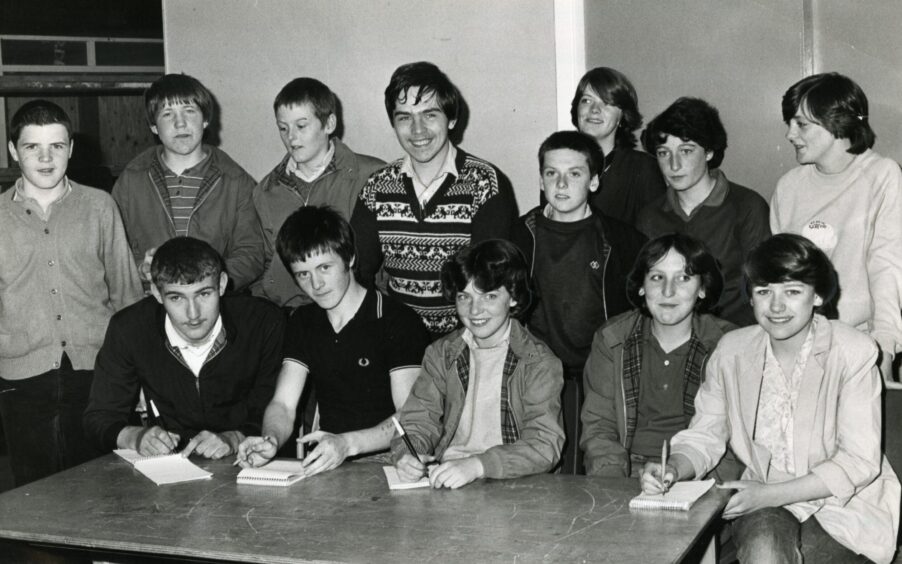

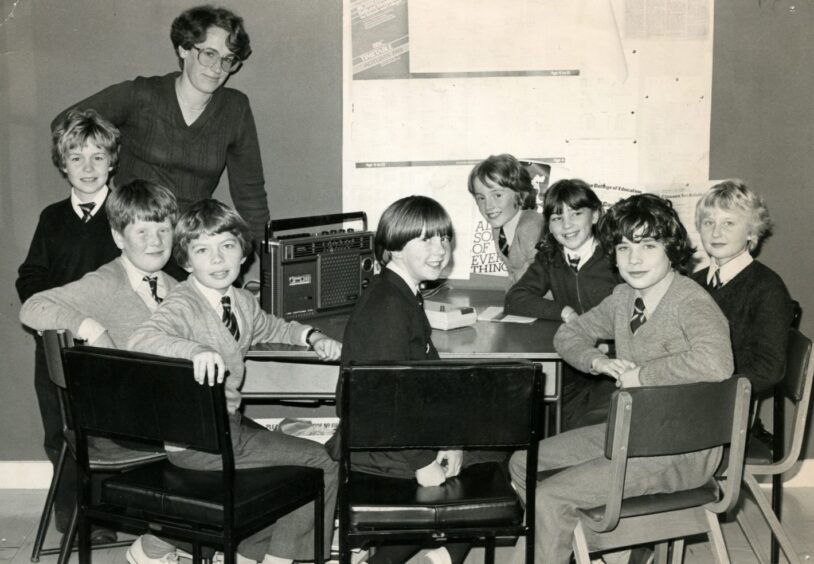
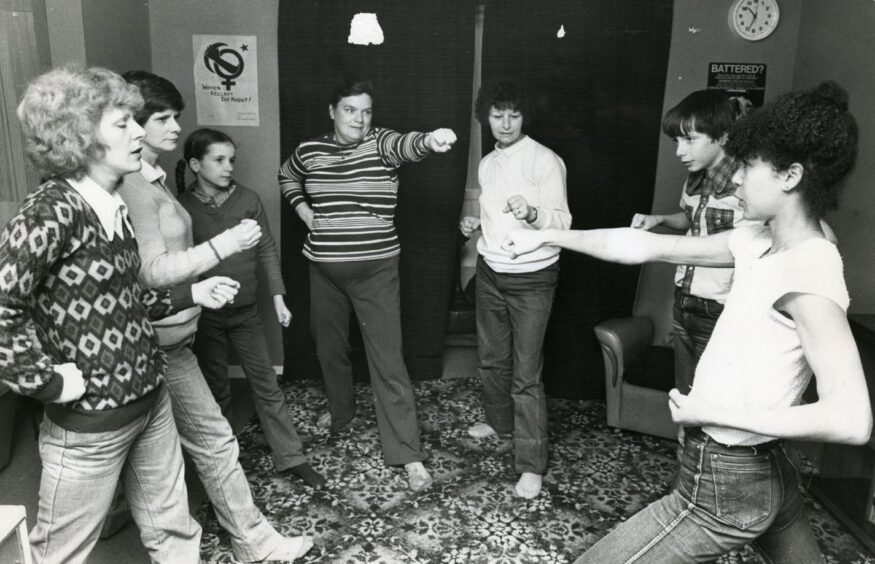
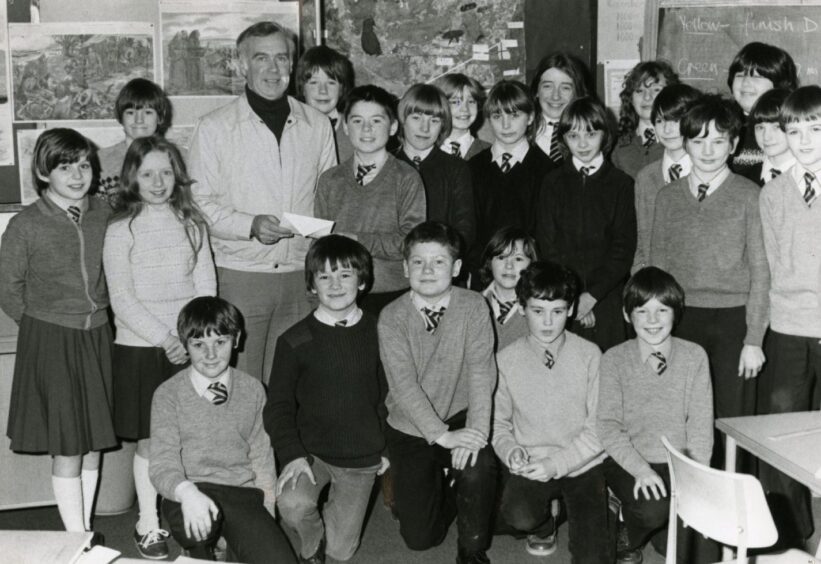
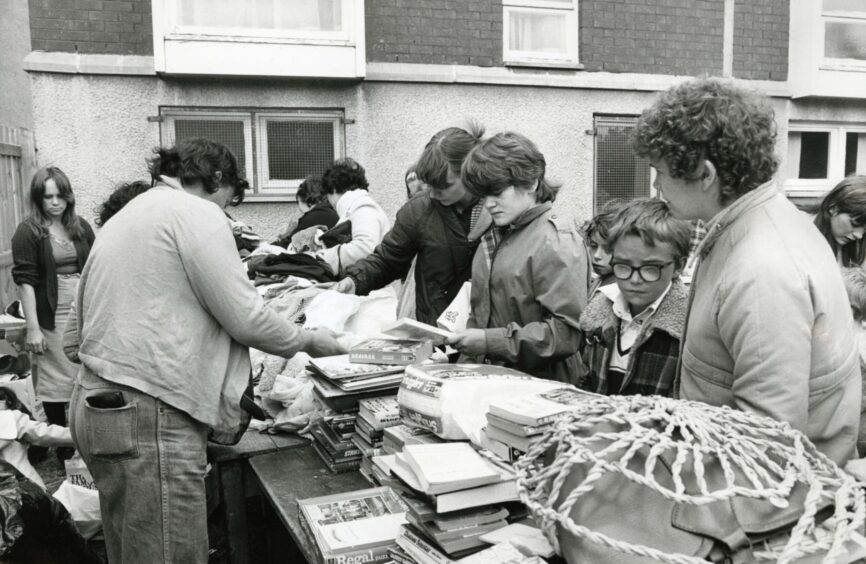
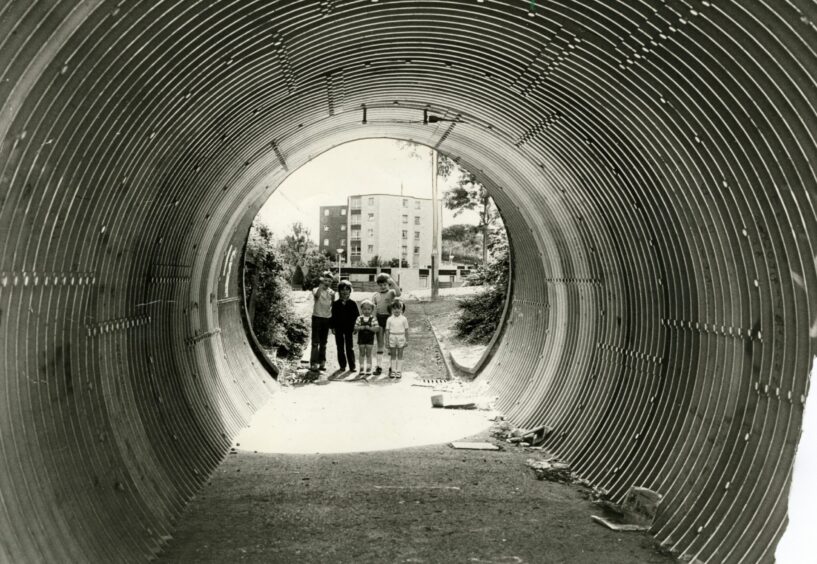

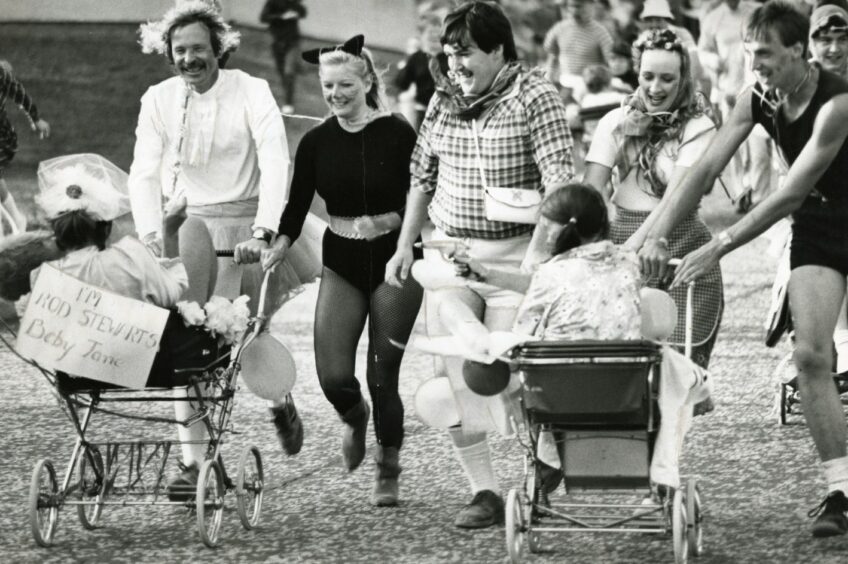
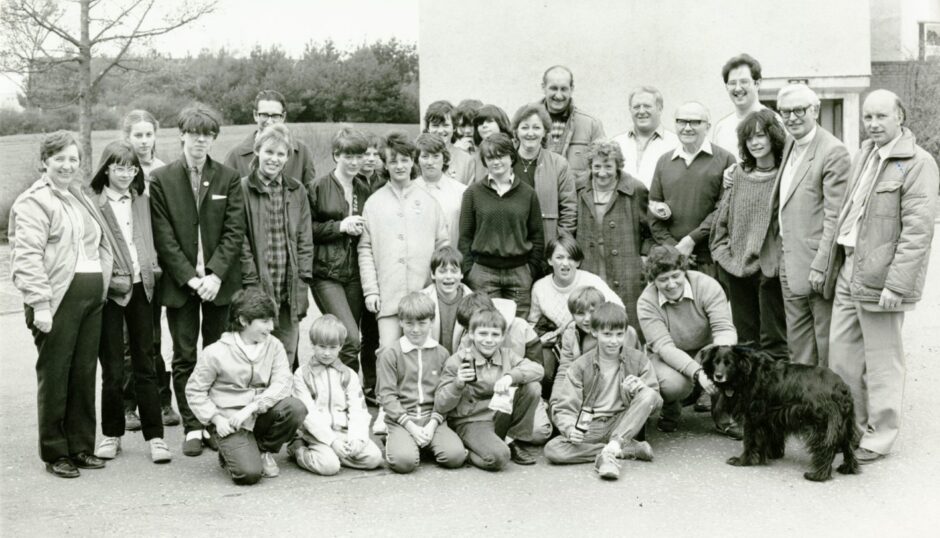
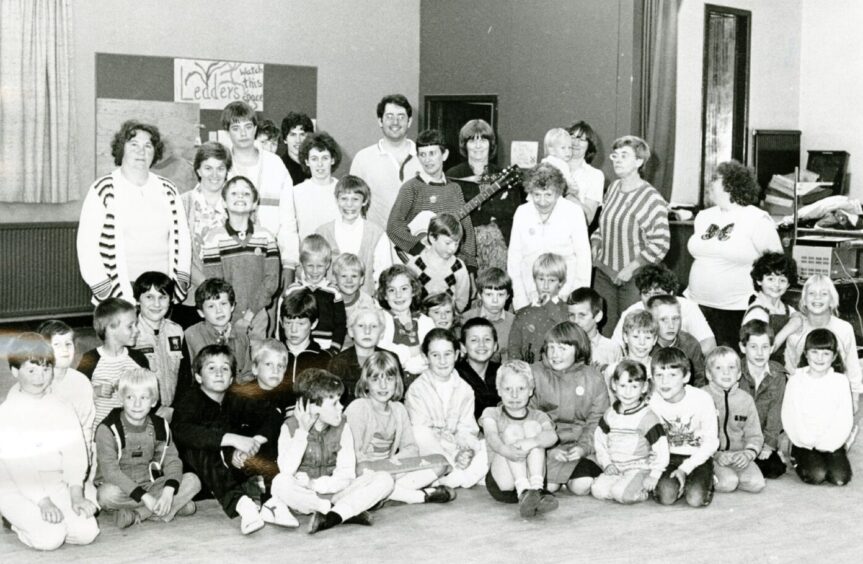
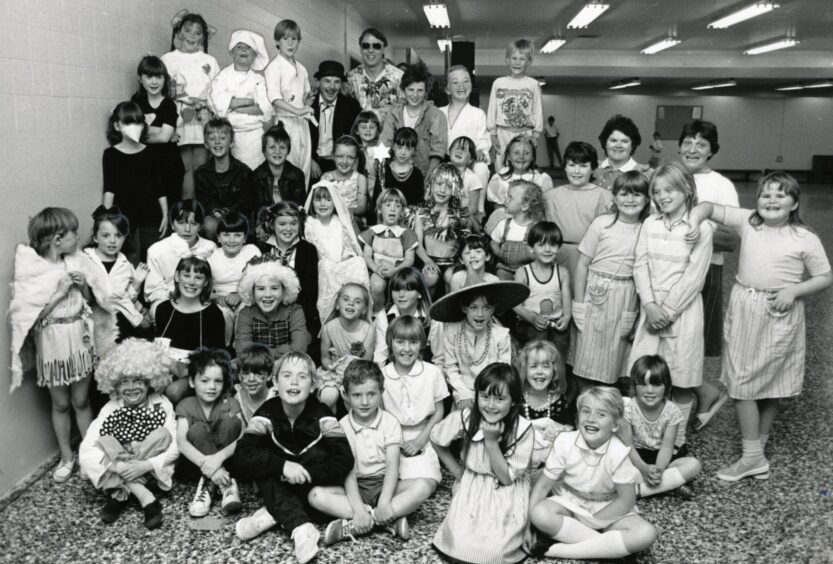
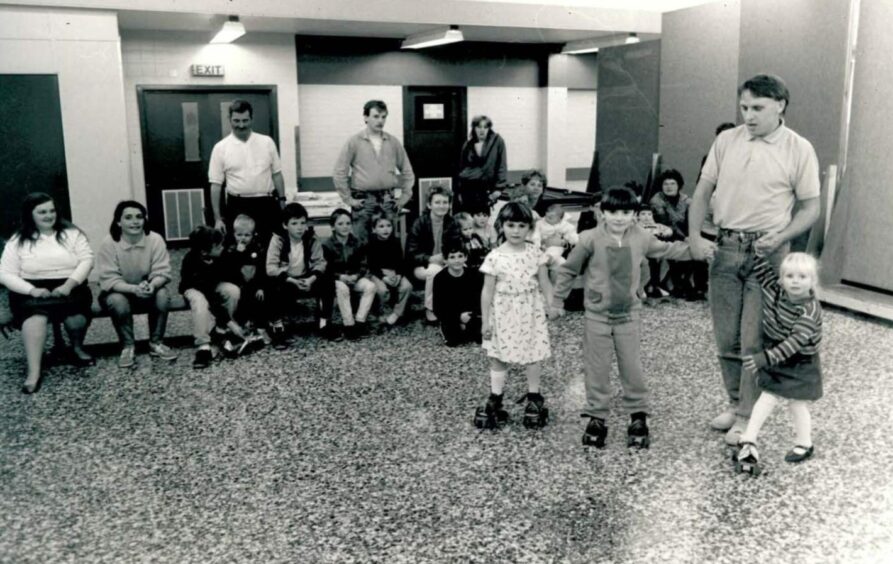
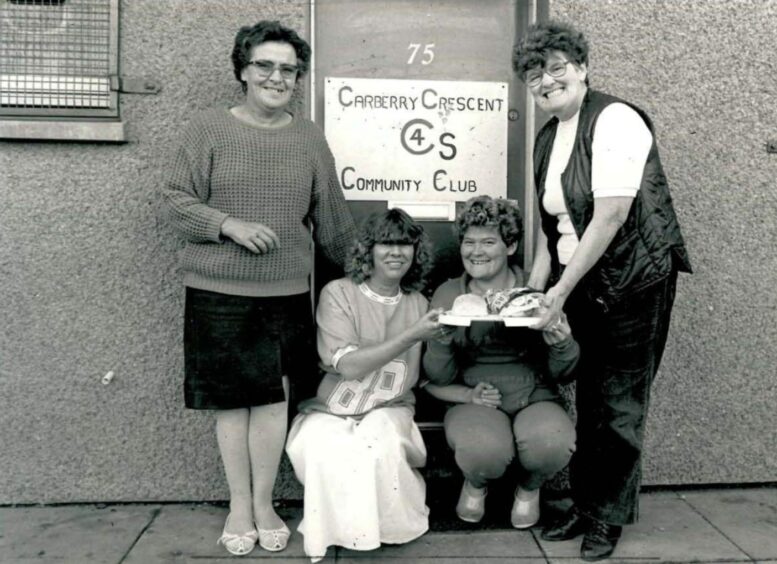
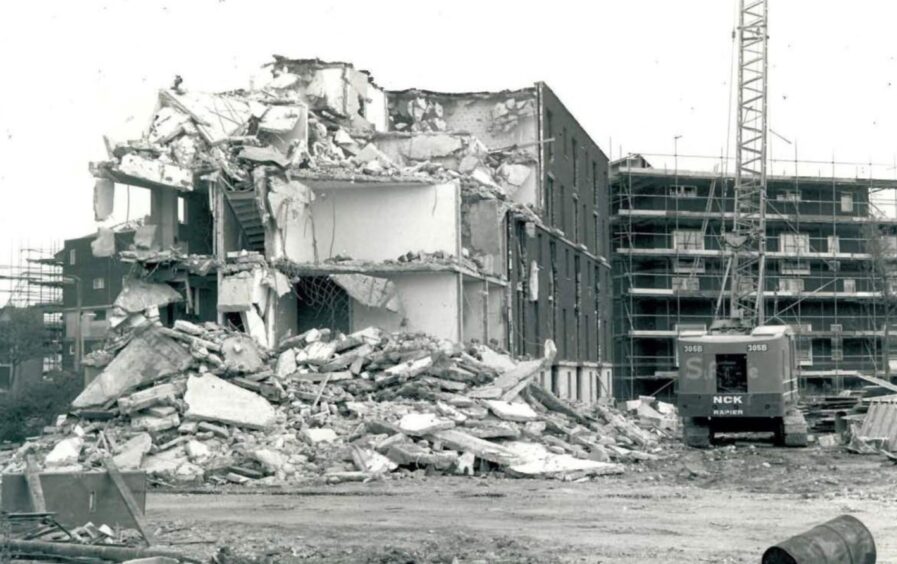


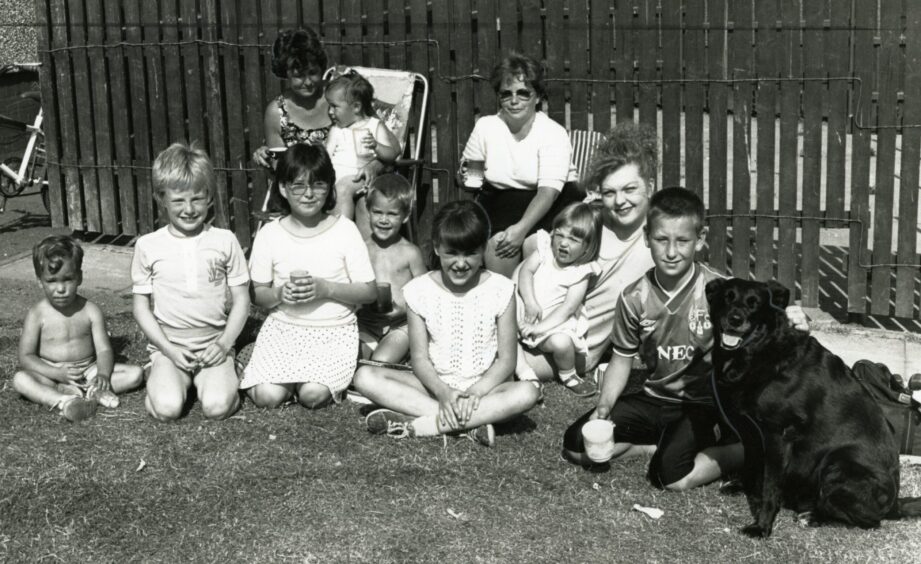
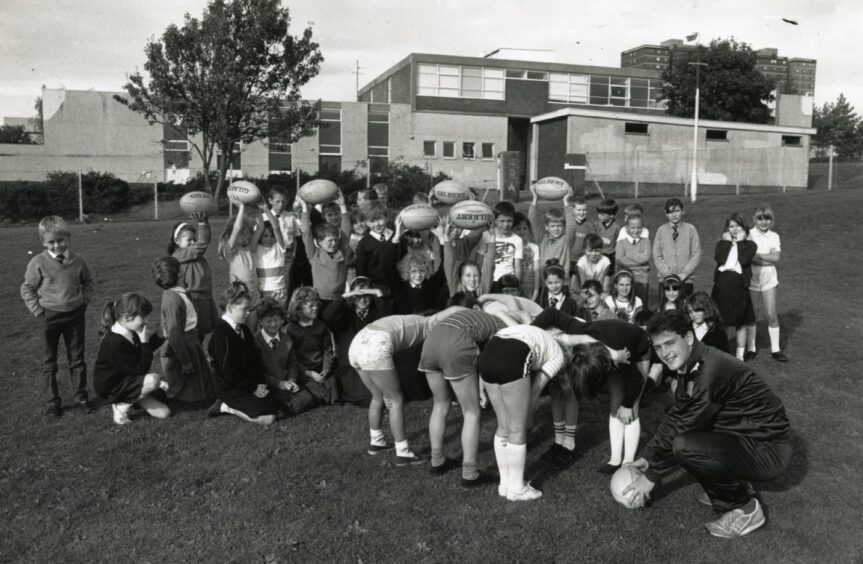
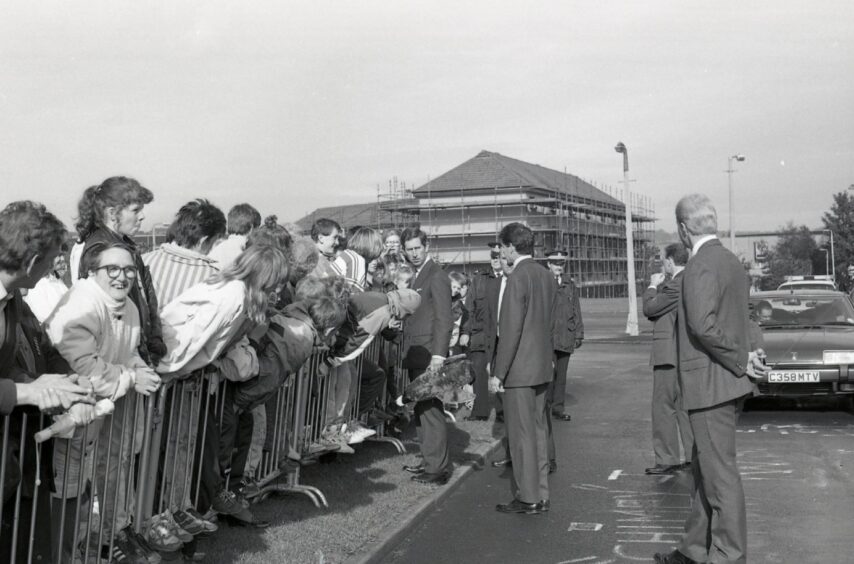
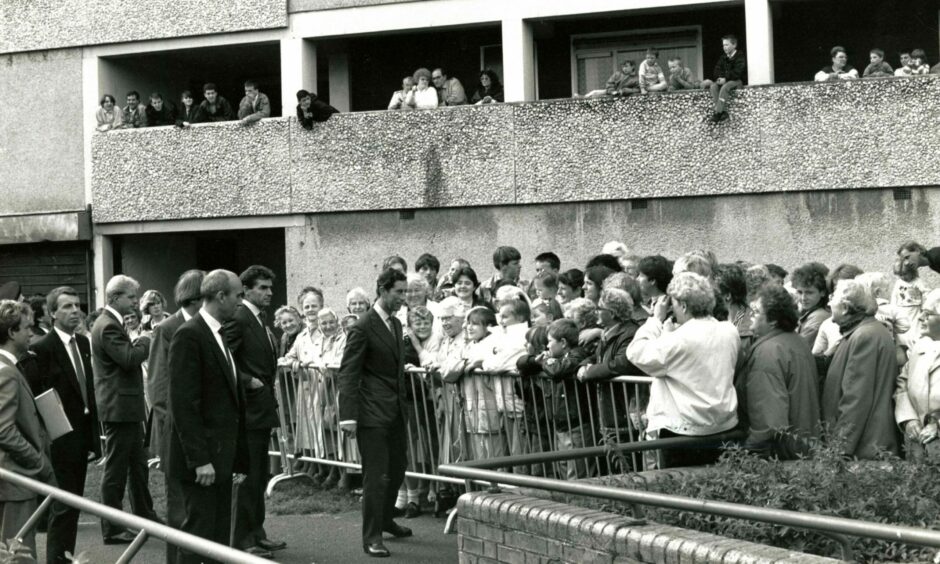
Comments are closed, but trackbacks and pingbacks are open.